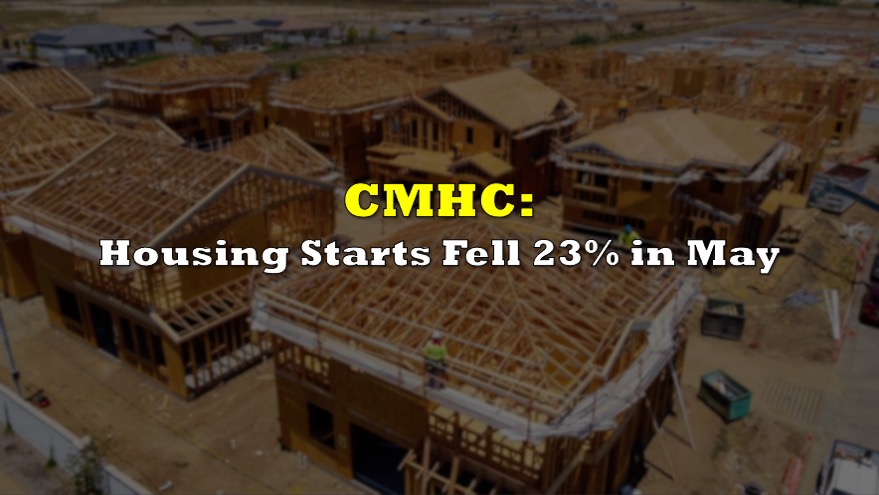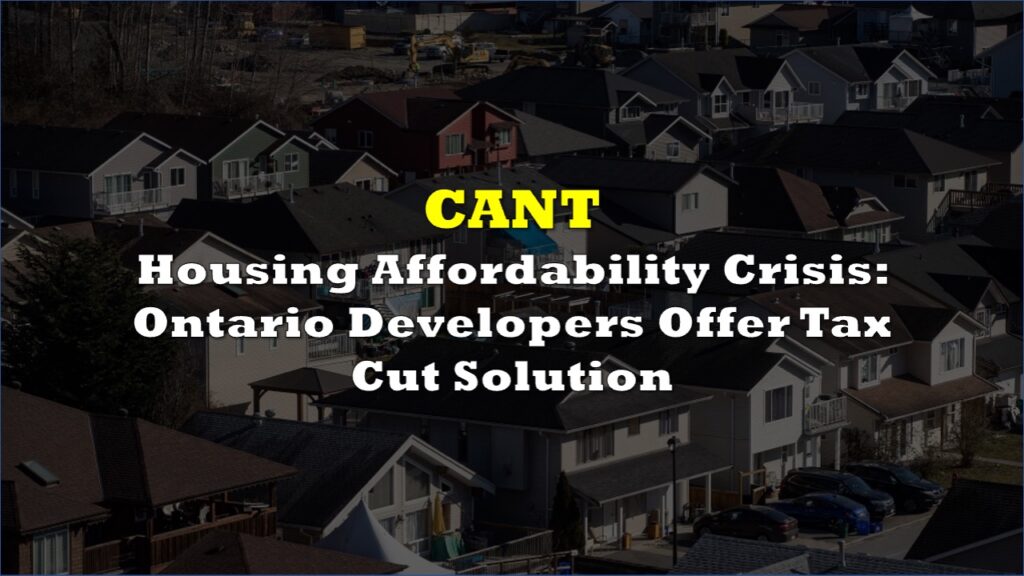New data from CMHC reveals that the federal government’s ambitions to significantly improve housing affordability by 2025 are unlikely to be met. Housing starts nationwide are hundreds of thousands below the levels deemed necessary to ease affordability pressures, with CMHC forecasting a further slowdown in construction in 2025.
Going, going, gone: New @CMHC_ca figures confirm it is mathematically impossible for feds to meet housing target on affordability: "We expect housing starts to slow down." https://t.co/PN5VS9REos #cdnpoli @BeyNate @RomyBowers pic.twitter.com/MX4ol4eiYK
— Blacklock's Reporter (@mindingottawa) February 6, 2025
New CMHC forecasts reveal a subdued yet evolving picture for the housing sector between 2025 and 2027. Lower mortgage rates and regulatory adjustments introduced in 2024 are expected to unlock pent-up demand, particularly among first-time homebuyers. However, Canada’s uncertain economic conditions—driven largely by potential US trade tariffs and reduced immigration targets—cast significant doubt on the speed and uniformity of a market rebound.
Forecasters at CMHC have laid out possible scenarios to account for wide-ranging outcomes tied to trade and immigration policy shifts. In the medium scenario, US tariffs of 25% would apply to about 10% of Canadian exports, with Canada responding in kind. Although such tariffs could weaken the Canadian dollar, raise inflation, and foster investment hesitation, some offsetting factors (notably stronger US government spending) may temper the overall damage.
In scenarios where tariffs are higher or applied more broadly, GDP growth could veer into negative territory by 2025 before recovering in subsequent years. Conversely, if tariffs are fewer or short-lived, Canadian exports could benefit from a stronger US economy, boosting GDP and hastening a housing recovery.
The figures show Canada’s real GDP potentially climbing from $2.426 trillion in late 2024 to as much as $2.575 trillion by the end of 2027 in a high-growth scenario. Under more pessimistic assumptions, GDP may expand more slowly, ultimately reaching around $2.547 trillion. Higher interest rates on mortgage renewals—most notably between 2025 and 2026—will absorb some household income, keeping spending in check.

Housing Starts And Sales
Pent-up demand, triggered by relatively more accessible mortgage options, is set to spur an uptick in sales and prices, although gains will be uneven across regions and housing types. Ground-oriented homes are projected to see a firmer bounce in pricing, especially in cost-friendly areas where younger families can afford to buy. On the flip side, condominium markets tied to investor activity are bracing for a slowdown, with heightened listings fueled by owners looking to exit pre-construction investments.
CMHC forecasts total housing starts above the 10-year average, yet the overall pace is expected to slow between 2025 and 2027. Condominium construction will likely bear the brunt of this deceleration; meanwhile, rental apartment construction remains on track for robust growth into 2026.
According to CMHC’s medium forecast, housing starts will hover around 240,500 units in 2025, then dip slightly to 238,600 in 2026 and 232,900 by 2027. Under a low-growth scenario, starts could fall to around 215,300 units in 2026, while in a high-growth scenario, they could climb to about 249,500 in that same year.
This is still a drop from 261,849 total housing starts in 2022 and 240,267 total housing starts in 2023.

While the government hasn’t always pinpointed an exact target number, the benchmark often cited by policymakers—and reflected in industry commentary—is roughly 500,000 new housing starts per year. This figure is intended to close the gap between the supply of new homes and the mounting affordability challenges.
The Bank of Canada is anticipated to cut policy rates in 2025 to support a faltering economy under the strain of tariffs.
Information for this briefing was found via Blacklock’s Reporter and the sources mentioned. The author has no securities or affiliations related to this organization. Not a recommendation to buy or sell. Always do additional research and consult a professional before purchasing a security. The author holds no licenses.









